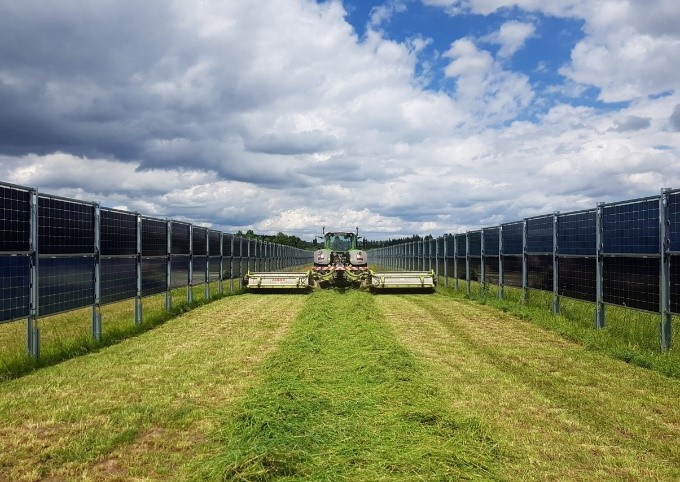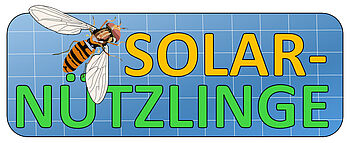Inhalt: Project details
Duration
10.2022 - 09.2025
Contact person
Dr. Kathleen Lemanski (BI)
Tel: +49 (0)3946 47-4810
kathleen.lemanski@julius-kuehn.de
The project "Solarnützlinge" is funded by the Federal Ministry of Food and Agriculture as part of the German Climate Protection Programme 2022.
Inhalt: Potential for promoting beneficial insects in agrophotovoltaic systems (Solarnützlinge)
Background:
In order to achieve climate protection targets set by the German Government, an enormous expansion of renewable energy will be necessary, including photovoltaic (PV) systems. However, very few areas in Germany are suitable for open space solar parks as their sole exclusive use. To avoid a potential land-use conflict between agriculture and energy production, agrophotovoltaic (APV) systems could be increasingly used. In APV systems, the PV modules are either installed elevated above the crop itself or vertically next to the crop, so that the area below or in between the modules can still be used agriculturally. Thus, both APV systems allow dual use of the land for energy production and agriculture. However, there is still a substantial knowledge gap regarding the compatibility of the dual agricultural and PV use. Especially, the potential impact on the functional biodiversity as an important guarantor for high yields and healthy crops in APV systems is still unexplored.
Objectives:
This pilot study aims to find out if and how APV systems can be designed to support settlement and promotion of beneficial insects and hence the reduction of certain pests. The research project will start recording and evaluating current activities and then testing concrete approaches as case studies. Specifically, various elements that can be integrated in APV systems, such as flowering strips or nesting aids installed in the mounting fixtures, will be developed and their performance tested in the field. Additionally, the project aims to investigate whether the PV modules themselves have a direct influence on specific beneficial insects, plant resources and pests.
The research project aims to provide knowledge about how APV systems can be designed in an environmentally friendly way, which generates additional benefits to agriculture through pest control and pollination. This in the long term would result in an energy-efficient production including sustainable plant protection and pollination. Finally, specific recommendations will be developed about how APV systems could be designed to promote beneficial insects and hence reduce certain pests.


